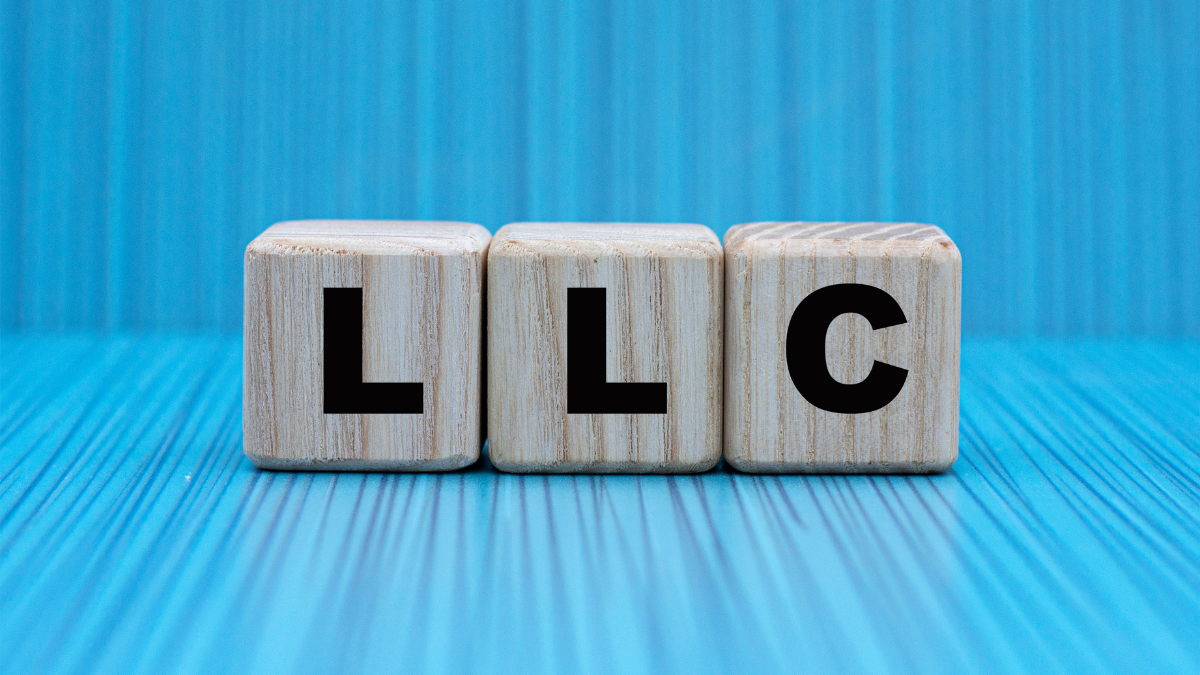If you are looking for ‘print on demand for fashion brands’, you’re…
Do You Need An LLC For Shopify Ecommerce Store?

Do you need an LLC for Shopify?
This question is common for people keen on a Shopify store’s legal structure. It’s normal for online entrepreneurs to focus on the benefits of Shopify and forget to look into the critical areas of making crucial business decisions.
For example, people need to learn what is required of their stores legally.
The straight answer to this question is NO. You don’t need an LLC for your Shopify store. Anyone can start a Shopify storefront and sell products online without proof of business registration. However, having an LLC for your Shopify store can be beneficial. I know that you are now eager to learn more.
In this guide, we shall explore the ins and outs of an LLC and how online business owners can benefit.
Table of Contents
What’s an LLC?
LLC stands for limited liability company. This business structure offers personal liability protection, i.e., separating personal assets from the company’s assets. If someone sues your company, they can’t take hold of your personal belongings or family finances.

The LLC structure offers the best of both worlds for many businesses since it combines a corporation’s efficiency with a sole proprietorship’s tax flexibility and limited responsibility.
What’s the difference between a sole proprietorship and an LLC?
A sole proprietorship is the opposite of an LLC. It is an incorporated business with only one owner and no separation between the owner and the company.
This means the owner enjoys all the profit and is responsible for all the losses and debts.
Many sole proprietors operate the business under their name and pay personal income tax on profits earned from the company.
Due to a lack of government regulation, a sole proprietorship is the most accessible business.
The only disadvantage of a sole proprietorship is that owners suffer 100% of the consequences of liabilities and lawsuits. This is also the most significant difference between a sole proprietorship and an LLC.
Another difference is that an LLC requires filing fees to set it up, while it costs you nothing to set up a sole proprietorship. You can also transition from a sole proprietorship to an LLC whenever ready.
Is an LLC the same as a business license?
Many people have this misconception, but an LLC and a business license differ. A business license grants a business owner permission to operate their business.
Your city or county government issues it. A license approves your business activity and shows that you can legally operate in that location. Depending on your niche, there might be specific regulations that you need to follow. A good example is health codes for a food business or zoning laws for a home-based business.
You need to pay a certain fee to acquire a business permit. It also involves some paperwork, but it’s usually a very straightforward process. The exact requirements depend on your business type and location.
Let’s use an example to help grasp the concept. Let’s say your business is a car. Here, a driving license is like a business license. It permits you to drive the vehicle on the road in your area.
On the other hand, an LLC is like car insurance that protects you (the owner) financially if the car crashes or falls into trouble.
Do you need a business license to sell on Shopify?
This is a common question for many aspiring Shopify store owners. The answer is no. You don’t need a license to sell on Shopify.
Shopify has no policy or federal law requiring Shopify store owners to have a business license. You can set up an account and start selling without any official permission.
Start a free 3 Day trial and enjoy 3 months of Shopify for $1/month Instead of $39/month on selected plans. Sign up now
However, it’s essential to understand that business licenses are state-approved, and you may find some municipalities requiring Shopify merchants to have licenses. Therefore, you need to check with your state to see what regulations and ordinances they have in place.
Below are other things to consider:
- What are the products that you are selling? Online Shopify entrepreneurs selling physical products will likely collect sales tax from their customers. Therefore, registering for a sales tax permit with your state is essential.
- The type of business: Some industries, such as those selling food or handmade items, might need additional licensing requirements depending on their location.
It’s always best to check with your local and state government websites or contact their business licensing departments.
They can give you specific information on the licenses and permits you need based on your business activity and location. Even though you might need a license, it’s usually a relatively simple process. The fees typically aren’t outrageous either.
Be sure to get your licenses before your store is launched. Plan and take care of this before you start making sales.
If you need clarification, consider contacting your local government for information.
Benefits of an LLC when selling on Shopify
Launching an online store on Shopify is easy and thrilling, but it’s essential to consider how to structure your business for legal and financial protection. Let’s break down the advantages of having an LLC when selling on Shopify:
- Protects Your Assets: This is a massive advantage to any Shopify seller. An LLC creates a separation between your business and your personal life. If your company gets sued or runs into debt, your assets, like your house or car, are generally protected. With a sole proprietorship, where you and the business are considered the same, your personal belongings could be at risk.
- Less complicated taxes compared to corporations: LLCs are considered “pass-through” entities. This means the business itself doesn’t pay income tax. Instead, the profits or losses of the LLC “pass through” to your tax return, where they’re taxed at your rate. This can be simpler than the tax structure of a corporation.
- Flexibility in Management: Most corporations come with a strict structure. This is where LLCs gain the upper hand for their flexibility in carrying out their business. You can choose to be the sole member (owner) managing everything or work with a team and decide how to share profits and losses.
- Increases credibility: Having an LLC can give your Shopify store a more professional image. It portrays a picture of a severe entrepreneur to your customers. They’ll perceive someone who has gone the extra mile to protect him and the business.
- Less maintenance required: Compared to a corporation, LLCs are more accessible and less expensive to maintain. There are fewer legal formalities involved in setting up and running an LLC.
It’s important to note that an LLC doesn’t offer magic protection against everything. If you guarantee and default on a business loan, your assets could still be at stake.
How to run a Shopify store as a sole proprietor
If you want to turn your passion into business as a sole proprietor, you must keep something in mind to ensure your venture runs smoothly. Setting up and getting started is very easy, and as a sole proprietor, you’ll have complete control of your Shopify store.
You are also responsible for everything, including debts and losses. You might be required to work much harder for your sole proprietorship business to thrive.
With careful planning and dedication and the help of Shopify’s smooth interface, the potential rewards from the company will be very satisfying. The following steps can help:
- Start by setting up your shop. Select a name and a theme that attracts attention and reflects your brand. Upload high-resolution photos of your products with a clear product description.
- Identify and place all the essentials, such as business licenses, taxes, and payment gateways.
- Stock your shelves virtually. Stocking, in this case, means adding products to your store. Ensure the descriptions are clear and engaging, highlighting why your products are unique. Choose products that come in many sizes and colors to reach out to a broader audience.
- Look for customers and get them to visit your store through strategic marketing. Social media platforms such as Instagram, Facebook, X, etc., offer great avenues to promote your products and connect with potential buyers. Also, please use Shopify’s built-in marketing tools, like email marketing, to reach potential customers and keep them engaged.
- Stay organized and streamline your workflow by integrating with Shopify via the Shopifybot. This AI tool helps you manage your stock, track orders, and fulfill them efficiently. It generally enables you to automate tasks and run your business smoothly.
- The last step is to keep a close eye on the money. Make sure that you understand your profit margins to be able to make informed decisions on pricing, promotions, etc. Keep monitoring your sales and expenses closely, day by day.
Read Also:
- Is Shopify Good For Blogging Like WordPress CMS?
- What Is Shopify’s Best Payment Provider?
- How To Make Your Shopify Store Live
- The Best Shopify Marketing Tools For Your Store
- 12 Side Hustle Ideas To Make Extra Money
What is EIN?
Have you ever heard of an SSN (Social Security Number)? It’s a unique code used to identify individuals. An EIN, or employer identification number, is like an SSN in business. It’s a nine-digit number issued by the IRS (Internal Revenue Service) to identify companies for tax purposes.
Do you need an EIN for your Shopify store?
An EIN might be optional if you are starting your business. However, you might need it later as your business expands for tax purposes.
If you’re a one-person operation (sole proprietor) and don’t have any employees, you generally don’t need an EIN. You can use your SSN for tax purposes when setting up your Shopify store. However, if you’re a sole proprietor but plan to hire employees, you’ll need an EIN. You’ll be responsible for paying payroll taxes; the EIN must do that.
Business structure matters a lot when it comes to EIN. If you’ve set up your Shopify store as a Limited Liability Company (LLC) or a corporation, then you’ll need an EIN. These business structures are separate from you as an individual, and the EIN helps differentiate the business from your finances.
Start Shopify For Only

Try Shopify free for 3 days, no credit card is required. By entering your email, you agree to receive marketing emails from Shopify.
Frequently Asked Questions (FAQs)
- Do I need an LLC to sell on Shopify?
No, you don’t need an LLC to use Shopify as your selling platform. You are allowed to set up your store and start selling without an LLC.
- What are the benefits of an LLC?
Having an LLC depends on your situation. It offers various benefits, including:
- Protects your assets because your business and personal finances are treated separately. If your business is in debt or sued, your assets, like your house or car, are untouched.
- Simplified taxation since LLCs are considered “pass-through” entities. This means that the business doesn’t pay income tax—instead, the profits or losses “pass-through” to your tax return.
- Having an LLC increases your store’s credibility, giving it a more professional image.
- When should I get an LLC?
Let’s have a look at some situations where an LLC might be required:
- It would help if you went the LLC way when you’re serious about growing your business. It can offer you valuable protection as you expand your business.
- An LLC can provide peace of mind if you sell high-risk products that could lead to lawsuits, e.g., food items or sporting equipment.
- You need an LLC if you’re running your Shopify store with someone else. It helps to define ownership and profit-sharing structures.
- What if I’m a one-person operation with a small store?
Operating your business without an LLC is okay if you have a small store. But remember that your business could grow in the future, and you can always form an LLC later.
- How much does it cost to get an LLC?
The fees to form an LLC vary by state. There might also be annual fees to maintain the LLC.
- Should I get a lawyer to set up an LLC?
Hiring a lawyer to help you set up might be optional, especially if you know. However, consult a lawyer to ensure your LLC is formed correctly and answer any specific questions.




Comments (0)